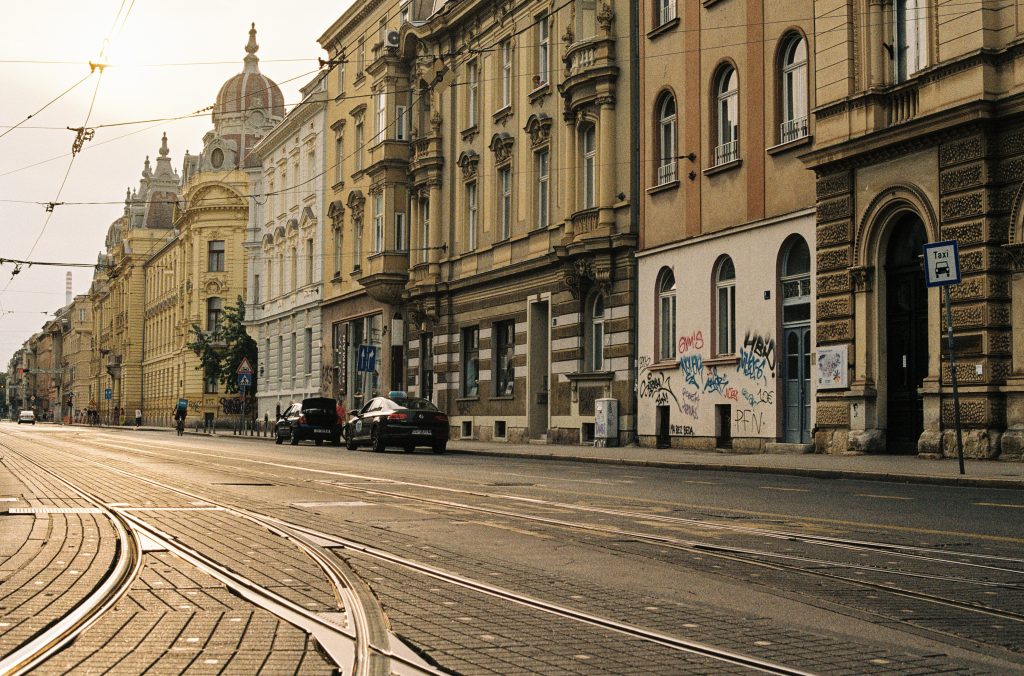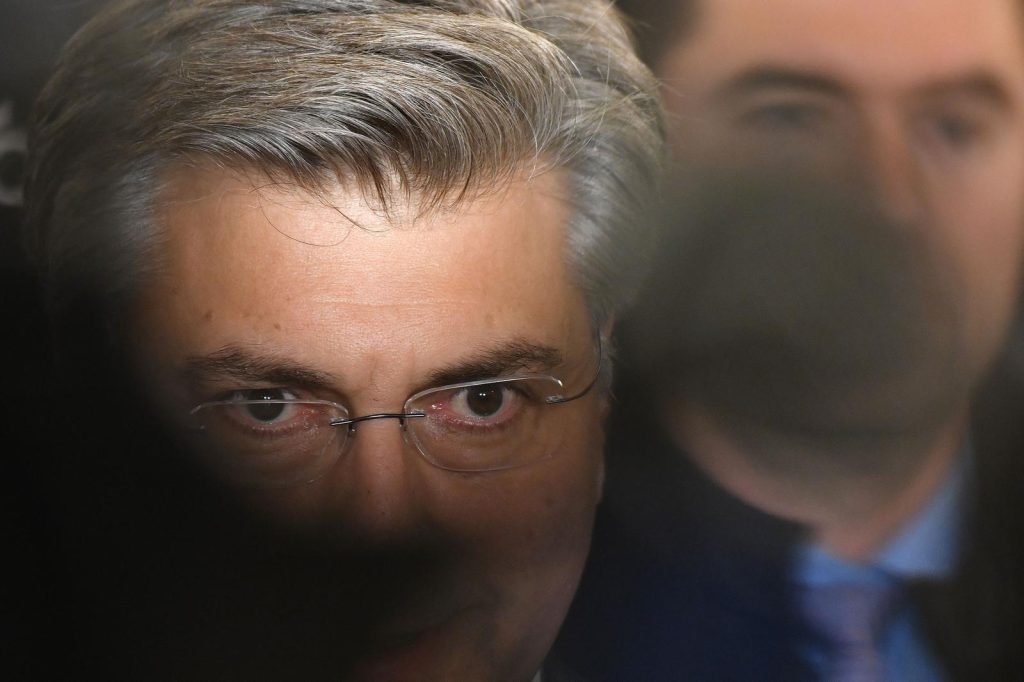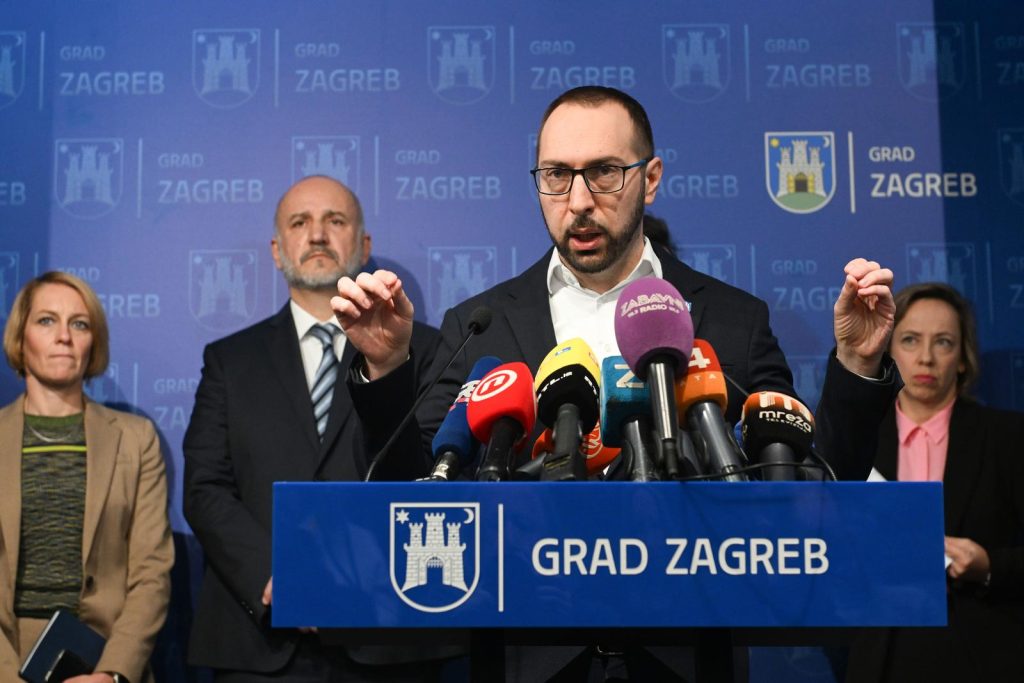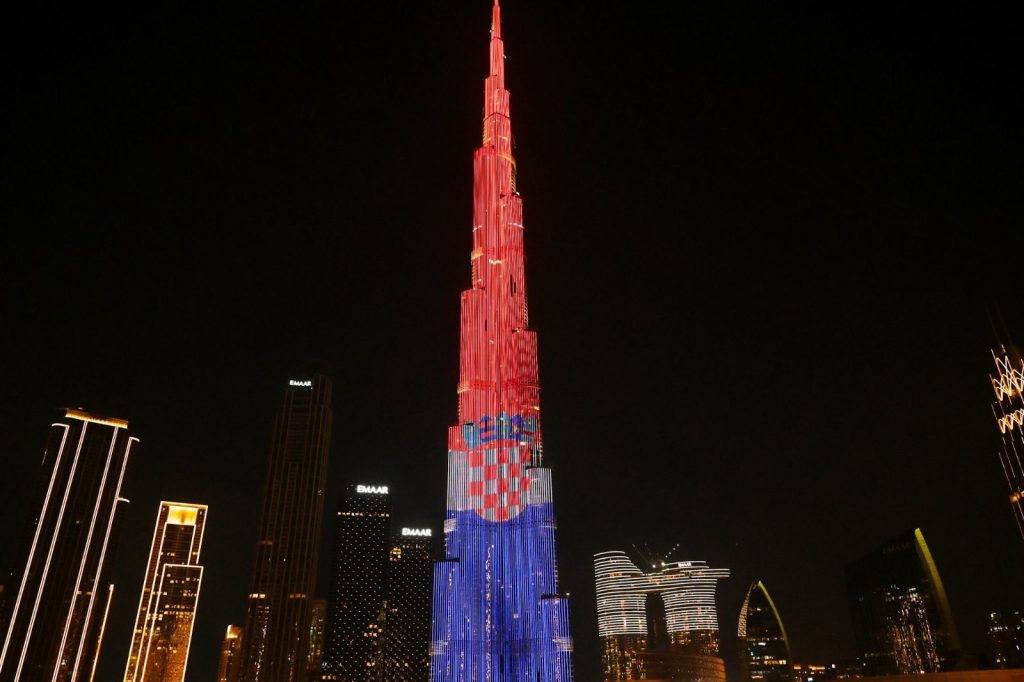December the 8th, 2023 – This week in Croatian politics, we’ve had drama owing to the dire situation with the controversial Jakuševec landfill, huge grants have been secured, the PM has avoided discussing a serious topic, and the Croatian colours have taken to the glitz and glam of Dubai.
Half a billion euros in financing has been secured

Approximately half a billion euros in Croatian financing has been secured by HBOR and the EIB. It’s currently expected that the new agreement between the European Investment Bank (EIB) and the Croatian Bank for Reconstruction and Development (HBOR) will make half a billion euros of new Croatian finances available.
These financial resources are intended primarily for small and medium-sized domestic companies, mid-cap companies and some public sector entities. The contracting parties signed the first tranche in the amount of 200 million euros from the total approved loan in the amount of 500 million euros, which is primarily aimed at supporting the aforementioned types of enterprises with medium market capitalisation. Among other things, this agreement will help HBOR absorb further EU grants and structural funds, it is also expected to help mobilise investments in the Croatian economy in the amount of up to one billion euros.
“HBOR is the leading provider of green Croatian financing, which is a key priority of the EIB within the Action Plan of the Climate Bank”, commented EIB Vice President Teresa Czerwińska.
You can read more by clicking here.
Plenković’s lips remain sealed when it comes to the HEP gas scandal

Over four months have now passed since journalists initially asked Prime Minister Andrej Plenković if he was getting to work dealing with the “gas being sold for a cent” affair, that is, the issue of the sale of HEP’s surplus gas. To briefly recap on this, as Index vijesti/news reports, Plenković stated on July the 27th that he didn’t plan to try and tackle this topic, and that he wouldn’t bother dealing with it for the few weeks which followed that date at the end of July.
“Deviations have occurred, we’ll have to look at all of the hows and whys in more detail, but it isn’t a topic that is the subject of our interest today, nor will it be in the next few weeks,” Plenković said back in the summer after the cabinet session. He didn’t want to give a clear answer as to whether the former head of HEP, Frane Barbarić, and one important figure in Croatian politics – Economy Minister Davor Filipović – still had his trust.
“That isn’t the topic we’re dealing with at this moment in time because we have other topics we need to handle,” he added. “Today it isn’t be on the agenda, tomorrow it won’t be on it either. While we’re all in the time of year traditionally dedicated to the summer holidays, it certainly won’t be a topic on the table,” answered the prime minister when asked to comment.
The whole story surrounding the HEP scandal broke right at the beginning of the summer when it was discovered that HEP was selling gas below any acceptable price and losing around half a million euros a day as a result. HEP claimed that they were forced to sell their gas below the normal price at auctions because they no longer had a place to store that surplus gas. They also accused Minister Davor Filipović of being late with a decision that would have prevented all of this in the first place.
Most (Bridge) MP Zvonimir Troskot then announced that HEP was purchasing gas from INA at a price of 47.60 euros per megawatt hour, and then selling it off much cheaper to suppliers through the Croatian Energy Market Operator (HROTE), which is why in some cases, it was losing around 500,000 euros every single day. He also stated that HEP lost 10 million euros on gas surpluses during the month of June this year alone.
It was soon established that large quantities of this cheap gas were actually being sold to Pavlo Vujnovac, that is to the company Prvo plinarsko društvo (PPD). N1 then alleged, citing reliable sources, that PPD had purchased 63 percent of the total of 343,000 MWh of gas in June 2023.
Although not everything was being sold off for a mere a cent or a few cents, it was quite cheap: the average price at which PPD obtained gas from HEP’s stocks stood at around 11 euros.
The head of HROTE, Boris Abramović, confirmed this information in mid-July, although PPD defended itself by saying that they bought only 11 percent of the disputed gas. An open war of words broke out between certain people in Croatian politics, the government, and HEP, where the main question was whether Minister Filipović had been warned that the Croatian market was being threatened by the appearance of surplus gas on the market, which would have been being sold below the market price.
Plenković later boasted that the government had stopped the sale of gas below such low prices. “The government amended the relevant Regulation and stopped all of this,” Plenković said on July the 13th, before repeating that how the “situation in June” came to be would be looked at a later date. Over those days, USKOK got involved with HEP. In front of the HEP building at Ulica grada Vukovara 37, two of Uskok’s cars came, and the investigators picked up the disputed documents.
However, as the months passed and the seasons changed, many in Croatian politics simply lost interest in the case, as did the media and the general public. In September, the government had dismissed the head of HROTE, who was actually the first person to warn about the problem of surplus HEP gas. At the closed part of the session, the Supervisory Board of HROTE proposed the appointment of Darjan Budimir, who was previously Abramović’s deputy, to the leading position of that state-owned company.
Just a few days ago, the head of HEP, Frane Barbarić, was also dismissed, but not because of the gas scandal. Plenković dismissed Barbarić because the Municipal State Attorney’s Office in Split filed an indictment against him for the criminal offence of illegal construction.
The position of HDZ’s Davor Filipović has never been called into question, although there have been allegations that he was warned in due time about the gas situation in a letter, as well as in a meeting in front of numerous witnesses.
The Greek authorities hold on to the Croatian detainees

The saga surrounding the Dinamo Zagreb hooligans (Bad Blue Boys/BBB) being kept in Greek prisons following the fatal stabbing of a Greek AEK fan in Athens several months ago is ongoing. To briefly recap, the Greek fan was stabbed to death before a scheduled match between AEK and Dinamo Zagreb, resulting in the delaying of the match and the arrest of over 100 Croatian hooligans in the Greek capital.
As Index vijesti/news reports, the questioning of the Bad Blue Boys, suspected of instigating fan riots in August in which one AEK fan was killed, has continued this week in the Greek capital of Athens. This week the first group of 38 of the detainees was given the opportunity to supplement their defences after DNA and dactyloscopic expert examinations were carried out during the investigation, in which no new evidence was found against them.
Another group of Boys was later brought to court. On one recording of their arrival at the Greek court published by N1, one of the detainees can be heard shouting: “Plenković, vadi nas van! (Plenković, let us out!)”
Prime Minister Andrej Plenković recently announced that some good news for the detainees still under investigation in Greece was readily expected. At the same time, just like before when he announced that there was some good news for them, he didn’t actually specify what it was all about and what he was basing his optimism on at all.
The pressure for Zagreb mayor Tomislav Tomašević to resign following the rubbish landslide is mounting

This week, the second rubbish slide at the infamous Jakuševec landfill in Zagreb seriously injured three Čistoća employees, seeing one lose his hand and the lower part of his arm. The pressure is now mounting on the mayor of the City of Zagreb to step down from his position from some in Croatian politics.
As Index vijesti/news writes, in less than one month, there’s been yet another landslide at the Zagreb landfill in Jakuševec. Three people were injured, one extremely seriously. Mayor Tomislav Tomašević quickly closed Jakuševec and is now requesting an urgent meeting with the government. Prime Minister Andrej Plenković replied that the government would be happy to help, but that the City of Zagreb’s administration ultimately bears the responsibility for this tragic situation.
Who is really responsible for the events in Jakuševec? Is there air pollution? Where will the rubbish be taken now? A recent HRT Otvoreno/Open show dealt with these questions.
“Regarding this situation itself, even after the last rubbish slide, and even now, the competent inspections are the ones to determine what exactly happened, and then rehabilitation plan should be adopted. So, the designer, supervision and contractor are all private companies that have been managing Jakuševec for years now, so they should come up with a rehabilitation plan,” said Marina Ivandić (from Možemo!/We can!).
She added that additional air quality measurements were carried out at the location itself, which didn’t show any excesses in terms of gas. That being said, it was clear that an unpleasant smell was being clearly felt.
“When it comes to this situation, we really need the cooperation of the government, that is, the state, since the state, with its framework, its waste management plan and waste management strategy, actually foresees this infrastructure. On the other hand, European Union funding comes through the state, without which it is impossible to create such an infrastructure,” she added.
When asked if the landslide from three weeks ago has been dealt with, Ivandić said that they’re in the process of additional analysis for that landslide as well. Many in Croatian politics remain unhappy with this sort of answer, seeking to shut down the problematic landfill once and for all.
Branko Kolarić (SDP) is among those in Croatian politics to address safety first. He stressed that the importance of the safety of Čistoća workers is absolutely paramount.
“A third landslide mustn’t happen, and it definitely cannot be allowed to happen while workers are present,” he said. In the second place, he stressed the safety and health of the general public. Regarding air quality measurements, Kolarić said that there were no excesses in terms of gases being released that would endanger human health.
“This stench from that landfill isn’t a threat to human health but it does threaten people’s quality of life,” he added.
Ivica Lovrić (Independent), a former close associate of the late Zagreb mayor Milan Bandić, expressed his regret that Tomašević didn’t come to the show, to which the editor and presenter Damir Smrtić pointed out that the mayor was a guest on Dnevnik.
He is among the group of individuals in Croatian politics who believe that he should step down, also alleging that Tomašević had used illegal and unprofessional methods of waste disposal at the Jakuševac landfill.
“Thousands of tonnes of bio-waste and thousands of tonnes of ground bulky waste are separated at Jakuševec. So, instead of grinding the ground bulky waste into pieces so that it may be used as fuel in a cement plant, as is normally done elsewhere, it’s being ground into dust and we know that this dust and this bio-waste cannot form a hill,” Lovrić claimed.
He added that Tomašević should have resigned and that the problem of Jakuševec will not be solved for as long as he remains in charge of the city. He also said that they had warned the State Inspectorate, which, as he also alleged, didn’t take all the legal actions that it is obliged and authorised to take.
Unlike some in Croatian politics, Prime Minister Andrej Plenković has distanced himself from the events at the landfill which saw a man end up losing his hand. “How is it that we’ve come to blaming the government in the space of a mere couple of hours?!” he asked, clearly indicating that the blame lies with Tomašević’s administration and nobody else.
The Burj Khalifa was lit up in Croatian colours this week

In happier news, the Burj Khalifa, otherwise the tallest building in the world, was lit up in the colours of the Croatian flag this week. As Index magazin/magazine reports, the tallest skyscraper in the world, the Burj Khalifa, shone in the colours of the Croatian flag on Friday during Andrej Plenković’s visit to Dubai, and the Croatian Prime Minister boasted about the sight on the social networking platform X (formerly Twitter).
“Meeting with the largest investor in Dubai, Mohamed Alabbar, with whom we continue a high-quality dialogue and cooperation. This year, the Burj Khalifa is lit up in the colours of the Croatian flag once again,” he wrote.
Plenković spent time in Dubai, where he participated in the 28th United Nations Conference on Climate Change COP28, which is being held from November the 30th to December the 12th.
It’s worth mentioning that the tallest skyscraper on the planet has shone in the colours of the Croatian flag on several occasions now. Last year, during a different visit made by the prime minister, as well as back in 2018 when Croatia beat Denmark and advanced to the quarterfinals of the World Cup.









